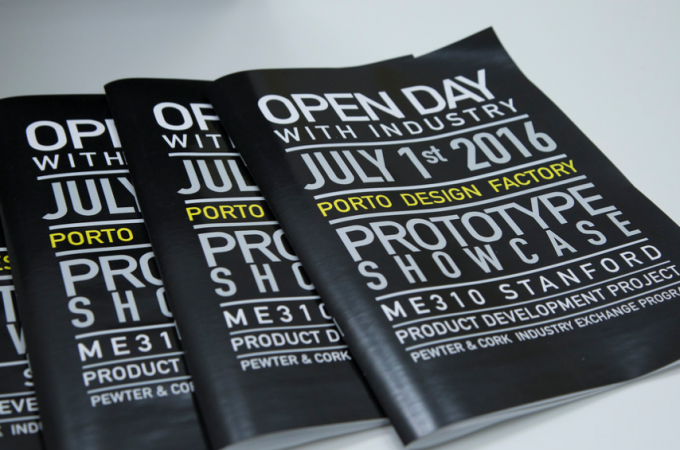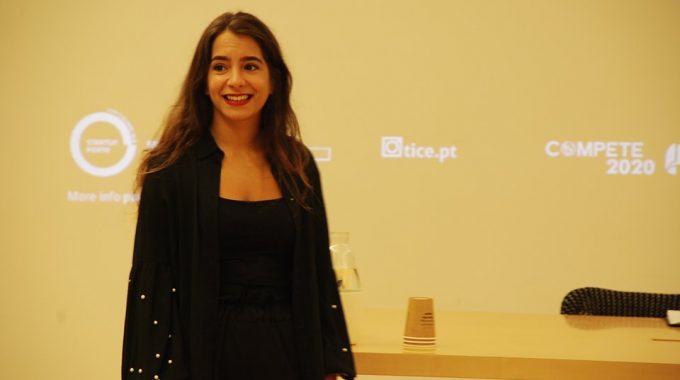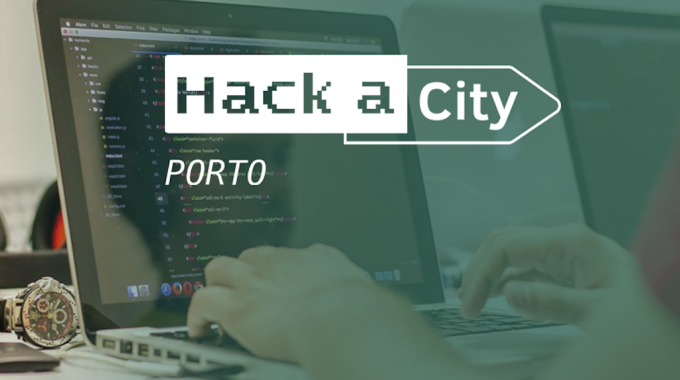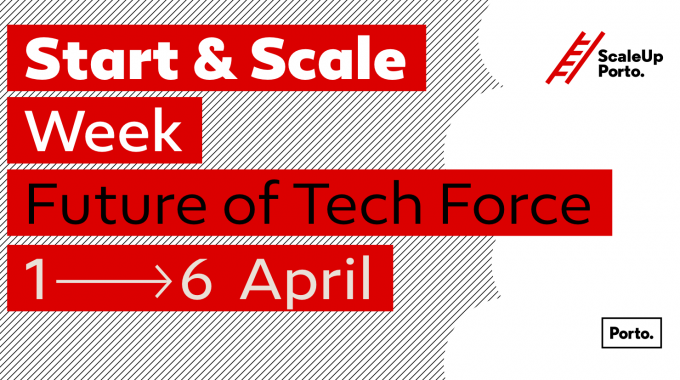The first edition of the Open Day With Industry took place in Port Design Factory and was attended by nine projects developed by Politécnico do Porto students along with international universities.
Students, teachers, researchers, entrepreneurs and professionals gathered in what is an innovative ecosystem where “those that will be the best employees in the future are trained”. If the creation of a startup goes through “ideation”, in PDF education is the starting point and the common thread throughout the process. Here, students work and achieve goals together, there is inter-discipline and internationalization in groups and projects that are focused on the user, providing direct contact with companies and society.
ME310 STANFORD PROJECT
FORD

Ford, while producer of commercial vehicle Ford Transit, in partnership with PDF and Standford University, decided to use “the impact of the motor traffic restriction has in the transportation of goods” as a starting point in the creation of Ford Cargo. This prototype has been developed as an “add on” of Ford Transit and is coupled to the back door of the van. It was applied to the “dolly”, an engine to facilitate their movement and electric charging with the progress of the van.
IKEA INDUSTRY

“People and Planet” is the 2020 strategy’s theme applied by IKEA. In the “People” subject, students have sought to improve the process of assembling the furniture and thus improve the end user experience. Thus was created a new mechanism – Lasa – “twist and lock” that allows the assembly of several pieces of furniture in seconds, eliminating screws, accessories and extensive manuals. For the “Planet” subject the team created a new biomaterial that can be used within various pieces of IKEA furniture, replacing the currently used board material. The aim is “processing and decreasing the waste of wood that is produced by IKEA Industry factories in resources and raw materials.”
SONAE – BERG CYCLES

Safe, intermodal, and flexile are the main features of Ghisallo. This three-wheeled bike was a challenge proposed by Berg Cycles and developed in partnership with Swinburne University of Technology (Melbourne) and Pontificia Universidad Javeriana (Colombia). There are several advantages: stability, safety (through visual presence warning system – “night halo”), reducing the need for effort (thanks to the electric motor that incorporates) and versatility by the folding mechanism to carry the bike in any means of transport. The user also enjoys a storage front space to put personal property, purchases, etc.
SONAE – WORTEN

To Improve after-sales service was the main goal of Worten and the starting point for PDF’s work, Università di Modena and Reggio Emilia (Italy). Together they created an integrated system composed by three parts: a “smart plug, a management platform and an augmented reality tool.” This system will allow the monitoring and collection of a set of indicators such as energy consumption, mechanical operation, among others. This information is collected and filtered by management platform that stores, organizes and sends notifications to the end user (“emergency notifications or notifications of maintenance/repair”). Reduction in repairs, promotes a more proactive attitude towards preventive maintenance and transforms the smartphone into an effective instrument for after-sales service, happens to be the purpose of this system.
ZIPOR

Currently there are several footwear companies that provide the ability to customize their product however, the soles are not part of this option. To allow the end user the possibility to customize the shoe sole is the key of this project – Soule – developed in partnership with Zippor. The younger audience can strengthen their “individuality, through the choice of colors, patterns,” etc., and the more mature audience may opt to choose new surfaces as anti-slip or protection surfaces, for example. In partnership with Tokyo Institute of Technology a machine was developed, low cost, which can be placed into any store and allows you to print on vinyl, to heat, to get vacuum solutions and to customize soles in less than fifteen minutes.
PRODUCT DEVELOPMENT PROJECT
PHILIPS

Philips launched the challenge to students to reorganize the physical space of the Medical Device Research Center. “We tried to improve the experience/use of the center”, the PDF team worked with the partnership of Aalto University (Helsinki). Together they worked on issues related to “design, ergonomics, furniture and open spaces”, seeking to redefine the user experience for the professionals and the users of the center.
RMV

One of the main difficulties in physical therapy treatments is the size and transportation of the equipment, since it implies that the patient has to travel to a specialized center. Raised the issue by RMV company, students reinvented one of the most used tools in physiotherapy: the Turbilhão. This new version is “affordable, simple, portable and allows the individual a household treatment”. The project redefines the physical therapy experience because it is an effective response to treatment and care at home, allowing lead complex physiotherapy solutions to home users.
LEELUU

The challenge proposed by Leeluu consisted in creating a product from a technology applied through the sensitive tissues touch. In partnership with Aalto University (Helsinki), the students created a watch to the wrist and developed new features from the fabric strap touch. These features can be highly effective in emergency home care contexts, for example.
PEWTER & CORK INDUSTRY EXCHANGE PROJECT

In collaboration with Nottingham Trent University, students were challenged to design and develop new products for domestic use from “materials and production techniques and traditional manufacturing of each of the countries of origin”. In an international design perspective, the portuguese team worked within techniques, in collaboration with the company Wentworth Pewter Sheffield, as the english team worked the techniques of cork, in partnership with Sedacor.
“Problem-based learning”
Support for co-creation, co-development and acceleration of innovative ideas are the basis of the work in PDF. The objective is defending a culture with experimental education that seeks to “support interdisciplinary educational programs, applied research and industrial collaboration”, contributing to an improvement in the learning and development of an entrepreneurial mindset.
There are twelve institutions that are part of the Design Factory Global Network, a network of partners that come from the four corners of the world.



